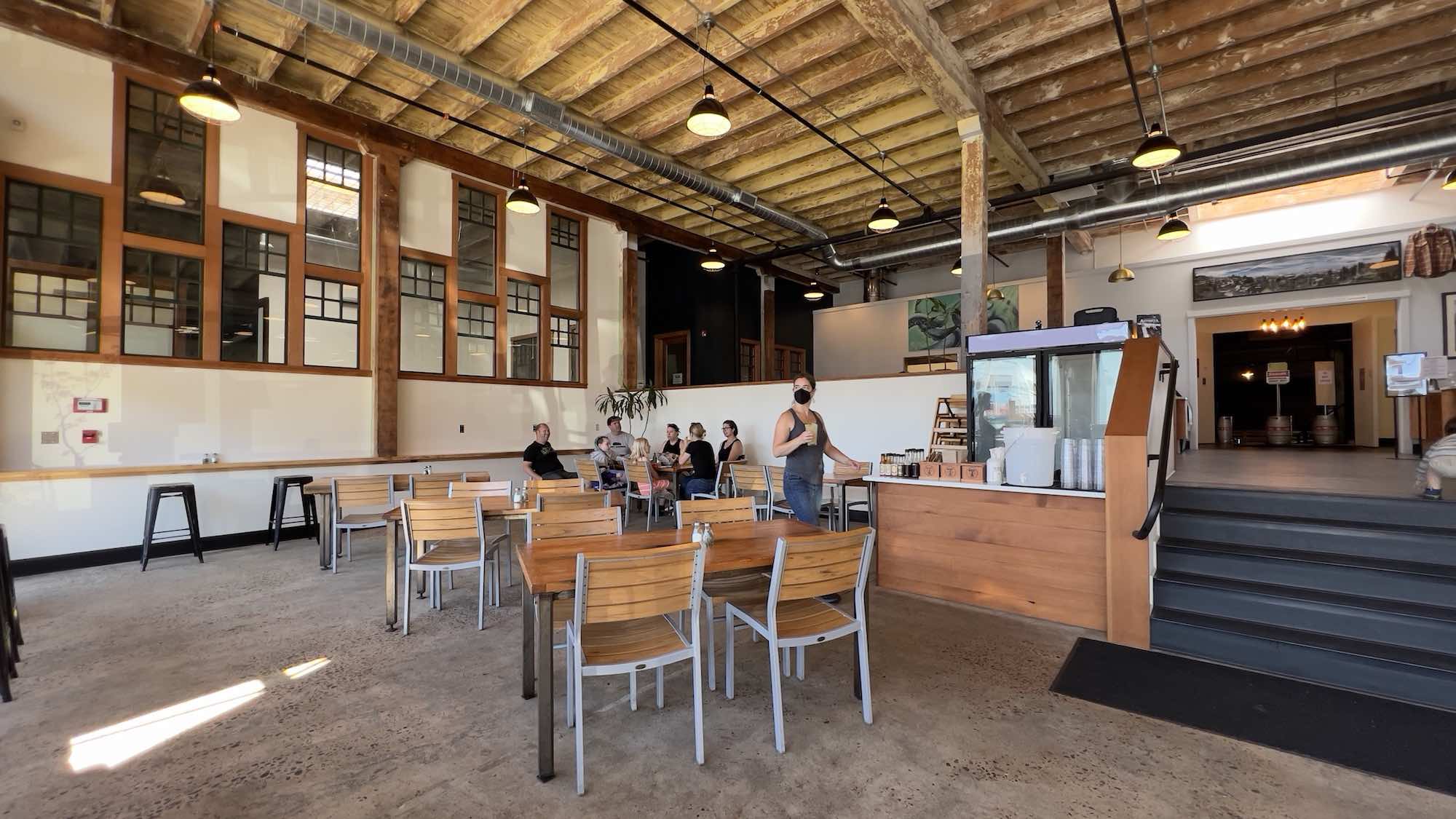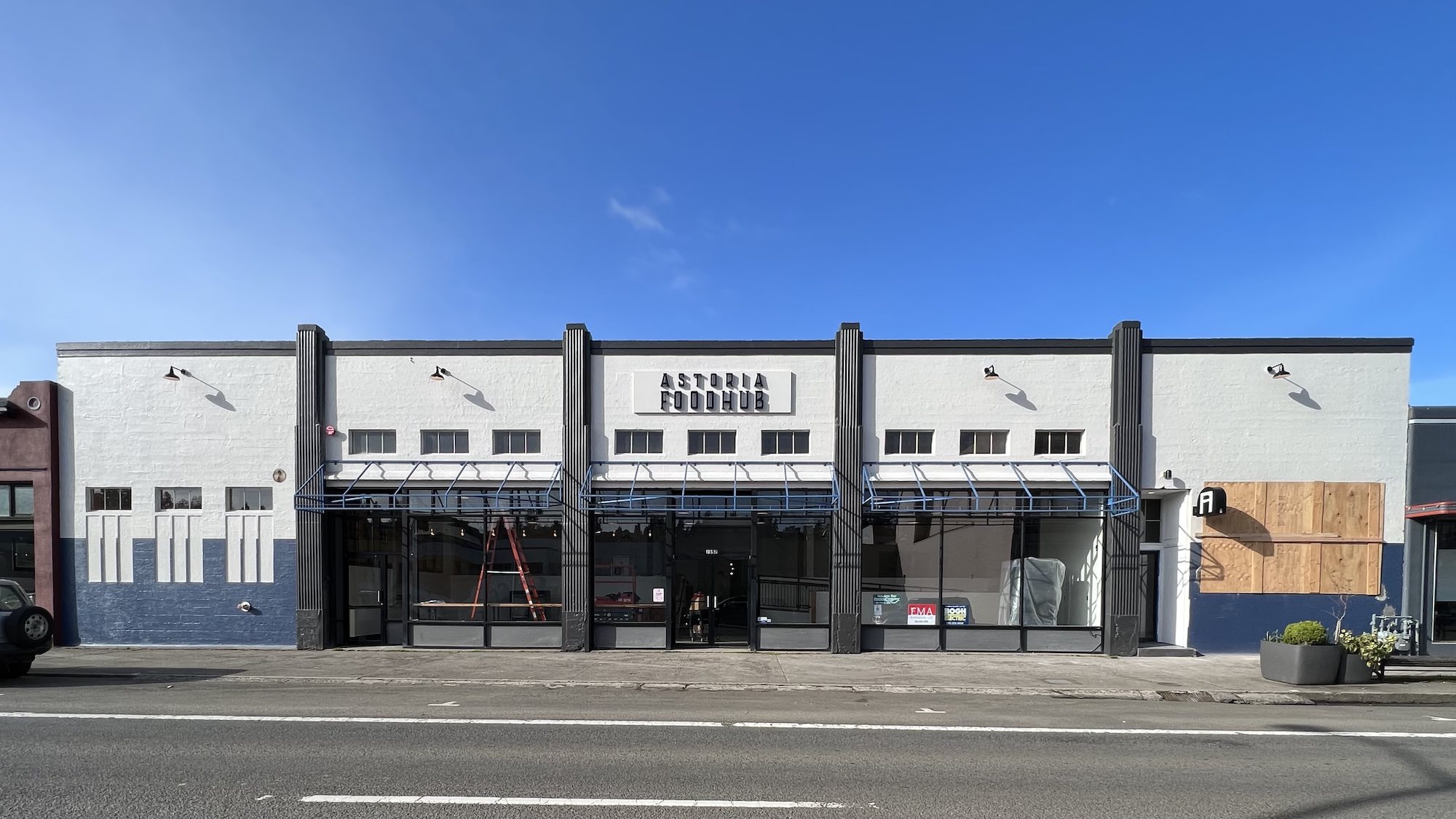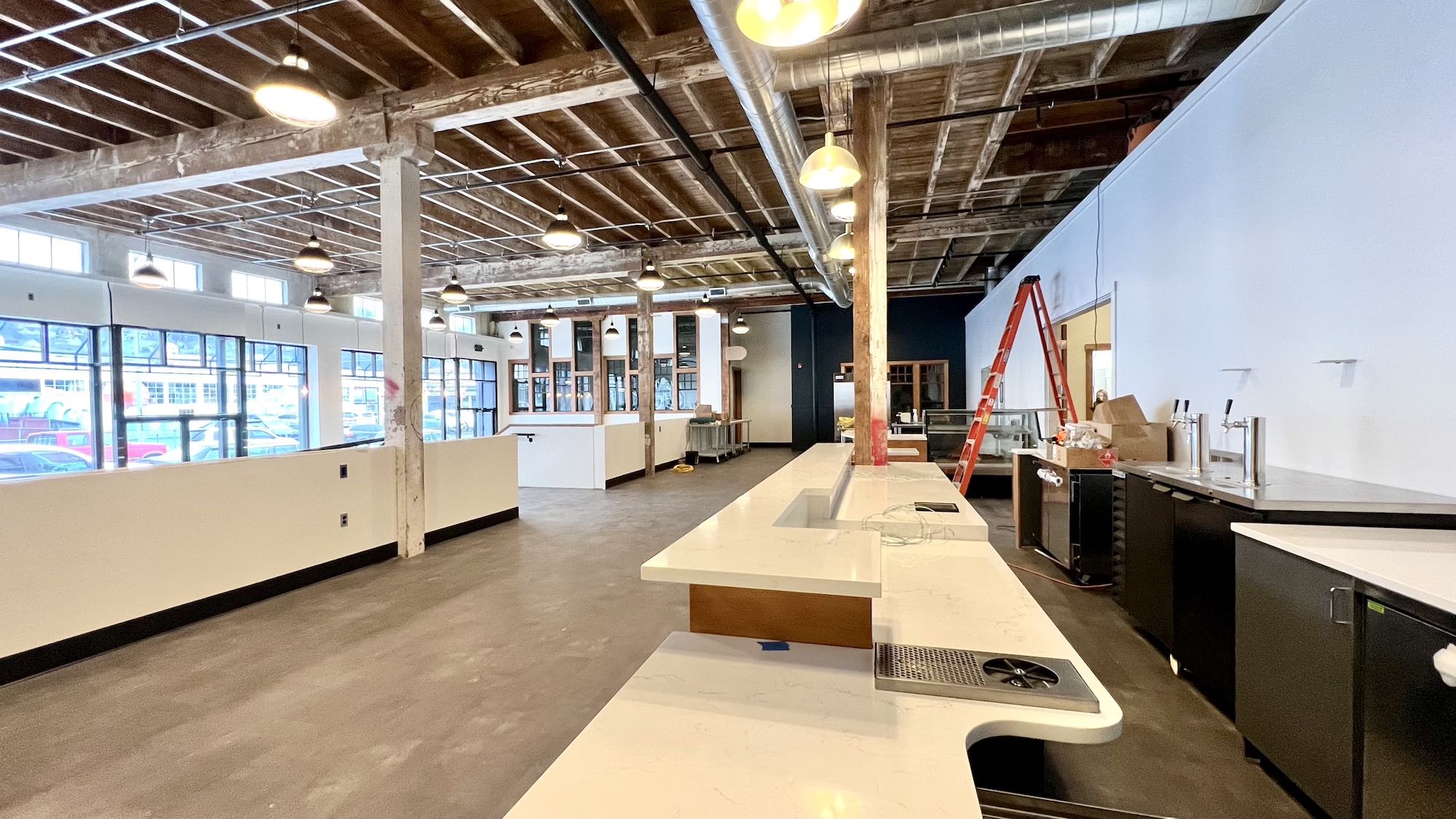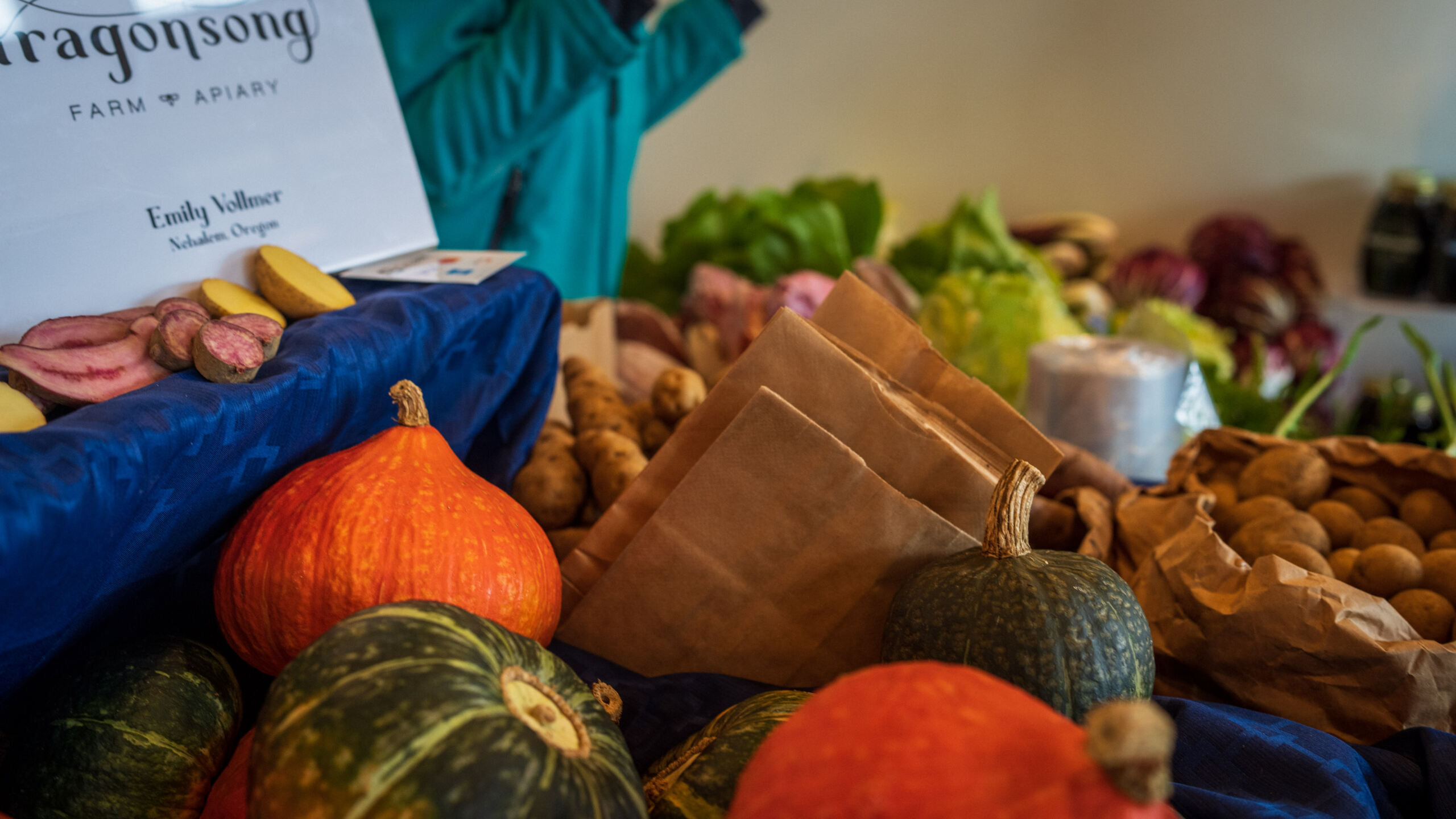Brand Story – A new partnership aims to create a more resilient food system on Oregon’s North Coast.
It all started in February 2017 when Tillamook Coast Visitors Association hosted a two-day, county-wide rural tourism meeting with Travel Oregon to develop a food trail on the North Coast. While the official meeting time among the 80 participants was spent on the trail, they also dove into deeper, operational discussions.
Chefs, restaurant owners, farmers, fishers, producers, farmers market managers and food-focused nonprofits were concerned about issues that affected their businesses and missions. They wanted better ways to order food supplies and more efficient ways to get products picked up and delivered. They were also concerned about losing precious time off the farm and boat to make deliveries and get new customers, and they wanted to know how to expand markets.
Having so many of their colleagues in the same room turned out to be a game-changing event.
At a producers event in Garibaldi with buyers and sellers of local foods: Lauren Sorg, Food Roots; Jeff Wong, CS Fishery; Tyson Rasor, EcoTrust; and Jared Gardner, Nehalem River Ranch
After a year of development, the North Coast Food Trail launched in March 2018. Something else launched as well: a collaborative effort to determine the need and then build resilient systems to create a network of food hubs and integrated delivery system.
“Development of the food trail spurred a much larger involvement on the issue, expanding to two counties,” says Nan Devlin, executive director of Tillamook Coast Visitors Association. “And when COVID hit, so did concentrated actions toward making a North Coast food system a reality.”
While the discussions were productive, it takes a lot of planning and commitment to create efficient food distribution systems. Were people up for it? To find out, the visitors association applied for and was awarded a grant from Business Oregon’s Rural Opportunity Initiative program for a series of focus groups, surveys and local food-industry events to determine the feasibility and likely engagement from sellers and buyers of a centralized food hub and/or delivery system and a centralized marketing effort to reach more regional customers. Food Roots, a local nonprofit supporting small farms, conducted the outreach, and the response was overwhelmingly in favor of going forward with both goals.
While the Rural Opportunity Initiative study was underway, the Port of Garibaldi, Columbia Pacific Regional Economic Development District, Rural Development Initiatives, Economic Development Council of Tillamook County, EcoTrust and the Tillamook County Visitors Association developed a Seafood Value Chain report. This study, funded by The Ford Family Foundation, explored needs of small commercial fisheries, including cold storage, paths to ownership, access to capital and expanding markets.
Jared Gardner of Nehalem River Ranch approached farmers and producers in his local area to see how they could improve delivery efficiencies. Using his own delivery truck, he aggregated products from multiple beef producers and provided service to several restaurants and markets.
Tillamook Coast Visitors Association applied and received a second Rural Opportunity Initiative grant to conduct a delivery logistics study to see how often and where producers deliver, and how many hours it takes. The grant also allowed the association to make a business plan for a food hub/delivery system and train people in food-hub management.
The first part of the project, also conducted by Food Roots, revealed the extent of redundancy: Many producers were making deliveries to the same location on the same days. The overall delivery time was equivalent to nearly four full time employees each week in peak season, and three full time employees in off-season.
The second part of the project was contracted to Columbia Pacific Regional Economic Development District. The new executive director, Ayreann Colombo, has an extensive background in food systems development, so this project tapped into her expertise. It also inspired the district to apply for and receive a substantial USDA Regional Food Systems Partnership grant. The $450,000 funding is applied over three years and extends the food system work being done in Tillamook County and Clatsop County.
Three community members completed a Food Hub Management certificate program through the University of Vermont. The online program included three courses conducted over three months.
The regional food systems work is underway, and includes a robust, collaborative effort among Columbia Pacific Regional Economic Development District , Rural Development Initiatives, Oregon Coast Visitors Association, Food Roots, North Coast Food Web, Small Business Development Council, Port of Garibaldi, EcoTrust, Blue Siren Shellfish, Nehalem River Ranch and engaged community members. The goal is to build a resilient food system that supports producers on Oregon’s North Coast and serves regional customers.
In 2020 Food Roots received a COVID-relief grant from Tillamook County. With a match from Oregon Coast Visitors Association, it purchased a delivery van. Nehalem River Ranch is managing the van delivery operations for the benefit of regional food producers. It is bringing about a big expansion of local foods to the North Coast, Portland and the Willamette Valley.
After two years of feasibility and due diligence and encouragement from Fort George Brewery and regional buyers, Gardner and multiple partners successfully funded the purchase of a building in Astoria, a former Sears store, which is now on its way to becoming the Astoria Food Hub. In the spirit of keeping more dollars in the pockets of hard-working fishers, farmers and ranchers, the partnership chose to use Steward® as its commercial lender, allowing residents to participate in the real estate-secured loan and keep interest payments in the community. In just two weeks, it raised the $700,000 needed for the down payment, permits, environmental and engineering studies.
“By collaborating across the region, we’re making progress,” said Gardner. “By partnering with the private sector, economic development, nonprofits, ports and tourism, we’re making major strides toward our goal — a more resilient food system on Oregon’s North Coast.”





